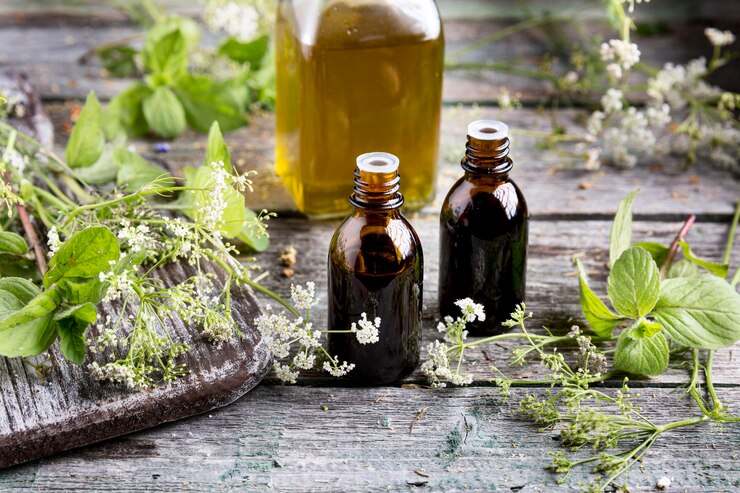
Essential Oils vs. Synthetic Aromas: Pros and Cons in Perfumery
Posted on Jan 6 2025 6:23 PM
Perfumery is a complex art that blends creativity, science, and nature. At its core, fragrances are crafted using two primary types of ingredients: essential oils (natural) and synthetic aromas (man-made). Both have unique characteristics, advantages, and challenges. This guide explores their roles in perfumery and helps you understand how they shape the scents we love.
What Are Essential Oils?
Essential oils are concentrated plant extracts obtained through processes like distillation or cold pressing. These oils capture the "essence" of the plant's aroma, offering natural and organic fragrance components.
Pros of Essential Oils
-
Natural and Authentic Scents
- Essential oils provide a true-to-nature scent, evoking an authentic connection to the source, such as lavender fields or citrus groves.
-
Health Benefits
- Many essential oils have aromatherapeutic properties, promoting relaxation, stress relief, or invigoration.
-
Eco-Friendly
- Derived from renewable resources, essential oils are biodegradable and generally considered more sustainable.
-
Complexity and Depth
- Their natural composition adds depth and uniqueness to fragrances, creating a more nuanced olfactory experience.
Cons of Essential Oils
-
Cost
- Producing essential oils can be expensive, as it often requires large amounts of raw materials. For example, it takes about 200 pounds of lavender flowers to produce 1 pound of lavender oil.
-
Allergies and Sensitivities
- Natural compounds can trigger allergic reactions or sensitivities in some individuals.
-
Variability
- The scent profile of essential oils can vary due to factors like climate, soil conditions, and harvest timing, making consistency a challenge.
-
Limited Palette
- Not all scents can be extracted naturally (e.g., ocean or candy-like notes), limiting the creativity of perfumers.
What Are Synthetic Aromas?
Synthetic aromas are man-made molecules designed in laboratories to replicate natural scents or create entirely new ones. These ingredients are often derived from petrochemicals or plant-based precursors.
Pros of Synthetic Aromas
-
Versatility
- Synthetics enable perfumers to create an almost infinite variety of scents, including those not found in nature (e.g., aldehydes or ozonic notes).
-
Cost-Effective
- Synthetic production is generally more economical and requires fewer raw materials than extracting essential oils.
-
Consistency
- Synthetic aromas offer precise and stable scent profiles, ensuring uniformity across batches.
-
Longevity and Strength
- Synthetic molecules often have better staying power and diffusion, making them ideal for long-lasting fragrances.
-
Ethical Considerations
- By using synthetics, perfumers can avoid sourcing animal-derived ingredients (e.g., musk) and overharvesting rare plants.
Cons of Synthetic Aromas
-
Perception of Artificiality
- Some people feel synthetic scents lack the depth and authenticity of natural aromas.
-
Environmental Concerns
- Depending on the source, synthetic production can involve non-renewable resources and contribute to pollution.
-
Potential Health Risks
- Certain synthetic compounds may cause allergies, irritations, or concerns about long-term exposure.
-
Overwhelming Strength
- When overused, synthetic aromas can be overpowering or cloying, detracting from the overall experience.
Essential Oils vs. Synthetic Aromas: Key Differences
| Feature |
Essential Oils |
Synthetic Aromas |
| Source |
Natural (plants) |
Laboratory-created |
| Scent Variety |
Limited to natural sources |
Virtually unlimited |
| Cost |
Generally more expensive |
More affordable |
| Longevity |
Often less potent |
Typically stronger and longer-lasting |
| Allergy Potential |
Natural allergens |
Possible chemical irritants |
| Sustainability |
Renewable but resource-intensive |
Varies based on production methods |
| Ethics |
No animal testing |
Can eliminate animal-derived ingredients |
Which Is Better?
The choice between essential oils and synthetic aromas depends on several factors:
- For Natural Enthusiasts: Essential oils offer authenticity and a connection to nature, ideal for those seeking organic or holistic products.
- For Creativity and Performance: Synthetic aromas provide a broader range of options and enhanced performance, making them perfect for complex, long-lasting fragrances.
- For Sustainability: A balanced approach that combines responsibly sourced essential oils with environmentally conscious synthetics may be the most ethical and sustainable path.
The Future of Perfumery
As consumer demand shifts towards sustainability and transparency, many brands are adopting hybrid approaches, blending essential oils with eco-friendly synthetics. Advances in green chemistry and biotechnology are also enabling the development of bioidentical synthetic aromas, bridging the gap between nature and science.
Conclusion
Both essential oils and synthetic aromas have their unique roles and benefits in perfumery. While essential oils offer a timeless connection to nature, synthetic aromas empower perfumers to push creative boundaries. Ultimately, the best fragrances are those that harmonize these elements, delivering an unforgettable olfactory experience.
Whether you prefer the natural allure of essential oils or the innovation of synthetics, every scent tells a story—yours to choose and wear with pride.
|